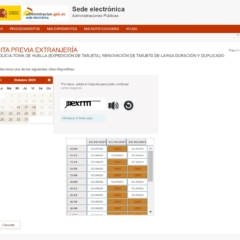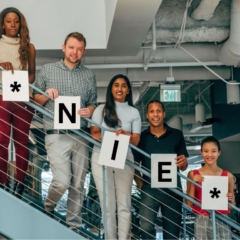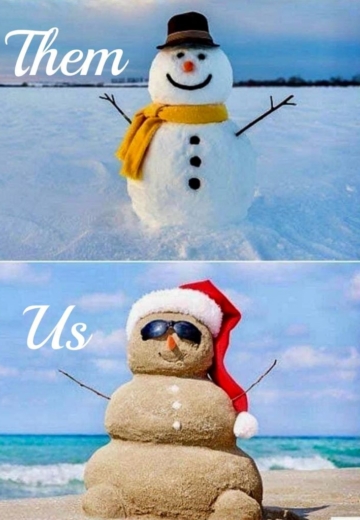All about the NIE

What is a NIE, how to get a NIE, who needs a NIE and more – solve all your NIE-related doubts here!
🐿️ In a nutshell:
The NIE (Número de Identidad de Extranjero) is a fiscal and identity number required for foreigners in Spain to engage in activities like signing contracts, paying taxes, owning property, or accessing services. It is mandatory for adults living in or purchasing property in Spain, while minors generally do not need it.
The NIE is distinct from a residence permit but is a prerequisite for obtaining one. It can be made abroad through a Spanish Consulate or in Spain via the police, and it’s usually easier to get it in Spain. While the basic “white NIE” (an A4 document) may suffice initially, official recognition often requires a residence card, such as the “green NIE” for EU citizens or the TIE for non-EU residents. The process is straightforward, and early application is recommended for smooth transitions, particularly for property purchases or other legal matters.
The NIE (Número de Identidad de Extranjero) is the fiscal and identity number a foreigner gets in Spain. It is equivalent to the NIF number for a Spanish citizen; it is also equivalent to the CPF in Brazil, Isikukood in Estonia, and SSN in the USA. It’s the first ‘document’ that a foreigner needs to do once living in Spain (or before moving), and it’s also mandatory for people that don’t even intend to live in Spain but intend to own property in the country.
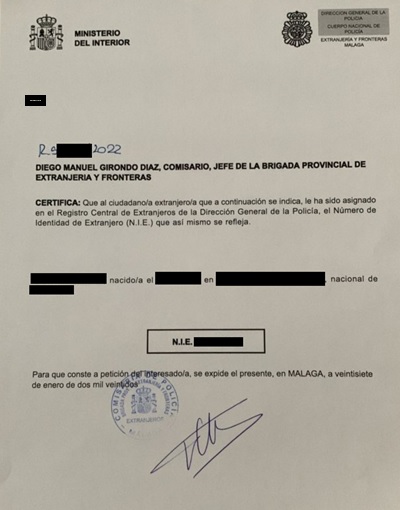
What is a NIE?
The NIE is a fiscal number assigned to foreigners. As it is individual, it is used also as an ID number. There is much confusion around the internet about it being a document or just a number, so let me clarify: it is just a number, or more precisely, a sequence of letters and numbers in the format LNNNNNNNL (where L are letters and N are numbers). When you get your NIE done, you will receive a paper like the one on the picture above, signed, stamped, and stating that you have been assigned a NIE and the corresponding sequence of letters and numbers.
When you sign a contract of any kind (car, housing, banking…) people will ask for your NIE. But they (often) will not settle for you telling the number or even showing this beautiful piece of A4 paper; they want to see it stated in something they acknowledge as a document, namely, a greencard or a TIE (both residence documents that we discuss on the residence page).
We did walk around with our A4 NIE papers until we got the residence document, showed it and argued that the A4 paper was also a document; I was often replied that this one is too easy to falsify, and therefore insufficient. Reluctantly, as we didn’t have the residence done yet, people would end up accepting it.
Why do I need a NIE?
You’ll need it to do anything that requires a contract or even a simple signature. On top of it being a mandatory ID number for any foreigner that either lives in Spain or owns property in the country, it is also the number that will identify you to the Spanish tax collection agency, the Agencia Estatal de Administración Tributaria (AEAT). It is also needed to open a bank account, sign contracts, to have any other local document, to enroll yourself or your kids in school and even to receive packages from Amazon.
Who needs a NIE? Do children need a NIE?
Every foreigner over the age of 18 that lives in Spain needs a NIE, as well as any foreigner that intends to buy property in Spain. It can be issued even to a baby, but it is not mandatory for minors to have it, as any contract signed on their behalf will be done by their parents and, therefore, it’s the NIE of the parents that will be required. This applies, for instance, to school and public healthcare enrollment.
Dependents over 18 and non-working spouses are also required to have a NIE number if they live in Spain, but their number can be obtained directly through residence. Let me clarify with an example:
If a couple is moving to Spain because the wife got a job offer in the country, she will need to get her NIE, and then proceed to make her residence permit. Once she has it, the residence can be extended to her husband, kids and other legal dependants. If they haven’t gotten their NIEs yet, they can get them directly through the residence process; but the principal (the person through whom the others got the right to live in Spain; in this example, the wife/mother) needs to get her NIE before getting the residence permit.
When do I need to make the NIE?
As far as I know, there is no limit of number of days one can be in Spain without one; but there is a limit on the amount of time one can stay without being a resident, even if one is from another EU country. And that is 90 days. So, if you come to Spain with intention to live in the country, you have 90 days to get your residence done, as well as the residence of your family members. Therefore, do your NIE as soon as possible.
In some cases, the NIE is needed even before arriving. According to the documents we got from our moving company, while moving our goods to Spain, a NIE would be mandatory to move the goods if none of us were an EU citizen. Because Hubby is, and the Consulate of Spain in our area was busy, we opted to make the number after our arrival.
Is the NIE the same as residence?
No, it is not. Having a NIE does not give rights to live legally in Spain, but it is a requirement to get the residence permit. If a family is moving and one of the members has the right to live in Spain (for having an EU nationality, for having a job in Spain, or for any other residence permit-granting reason), then this family member needs to get the NIE before getting his residence permit.
For the other members of the family, the NIE is not a requirement for the residence permit, as explained above in the subsection ‘Who needs a NIE?’, but it is still a mandatory number, which will be issued together with the residence permit.
What is a TIE?
It is another document; specifically, a TIE is a residence permit for non-EU citizens. A TIE contains the NIE number of the non-EU resident and can be used as a proof of that number, but a TIE is not a NIE! More on it on the residence post.
What are white NIE and green NIE?
Ouch! In reality, there are no such things, but let me explain. The NIE is just the number, as we already mentioned. But this number is required very often in the life of the recently-moved foreigner; and most of the time, the person asking – a bank teller, a policeman issuing documents, a real estate agent making a contract – wants to see it printed officially somewhere. When they ask to see it written, you may pull out your A4 piece of paper that states your NIE – that is the “white NIE”.
They may or may not be satisfied with that, and if not, they will ask you for the “green NIE”, which is a simplified (and more polite) way to say “This A4 piece of paper is easy to falsify, so I don’t trust it. I’d rather you proved me your NIE by showing a document that has your NIE and that I’d actually recognize as a document, such as your residence permit”. The residence permit for EU citizens is a green card (shown below), hence the nickname “green NIE”. Non-EU citizens have a TIE instead of the green card; it also contains the NIE.
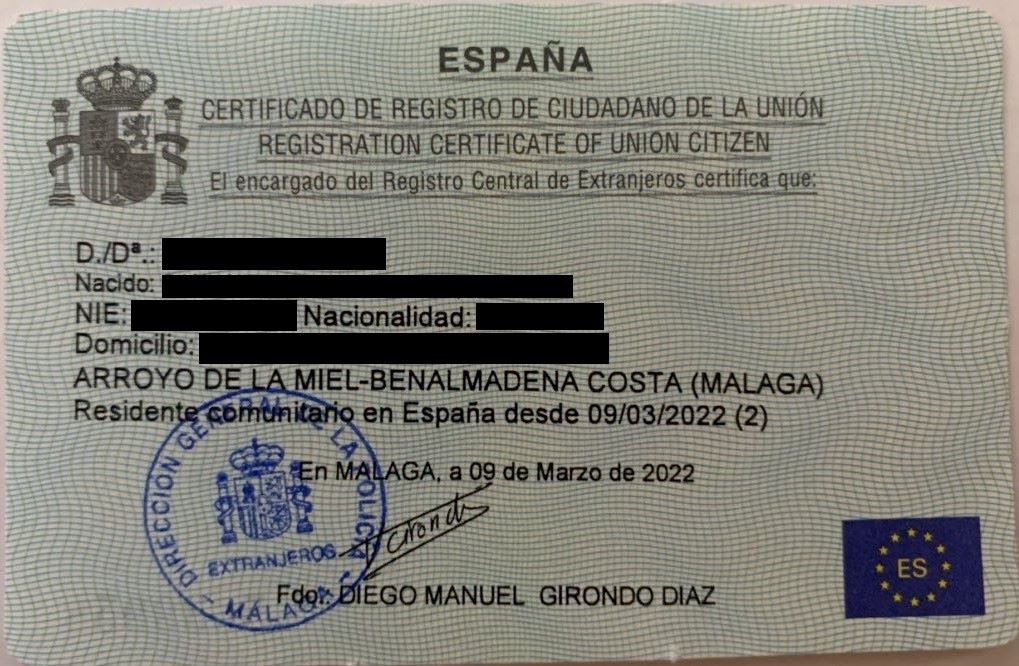
If you don’t have the residence permit yet, well, there isn’t much you can do, right? It is not your fault that Spain opts to give a piece of paper as a document; it’s up to the other part to decide whether to accept what the country provides or not, unfortunately. I believe most of the times they end up accepting it.
How do I get a NIE?
You can get it either from a Spanish Consulate or Embassy, if you are out of Spain, or from the Police, in Spain.
Getting a NIE from abroad
It is possible to obtain a NIE abroad in a Spanish Embassy or Consulate, but these places tend to be quite booked. Nevertheless, If you need to get it while abroad, you should check with the Consulate or Embassy of Spain that covers your area the requirements (if you don’t know how to find the institution, click here). On their webpage, the NIE requirements and instructions will be under Servicios consulares / passaportes y otros documentos / Numero de identidad de extranjero (NIE).
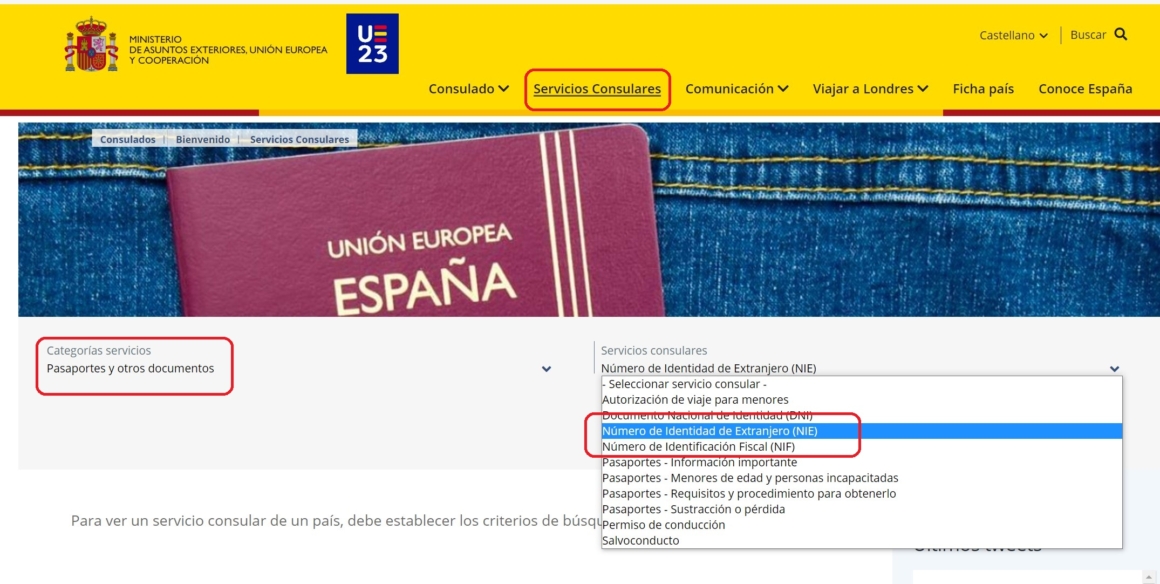
Getting a NIE in Spain
To get a NIE in Spain, you will have to book an appointment at the Police and go there carrying all the pertinent documentation. We did our NIEs ourselves, without a gestor (well, at least not a very participating one), so after we got ours, I wrote a step-by-step guide to book a NIE, that will probably help you with that, and also a post explaining the documents needed for the NIE. 😉
Our experience getting the NIE
In a family like mine, of two adults and a kid, being one European adult, one European kid and a non-European adult, only the European adult would necessarily need to go through the process of getting a NIE number in order to latter get his residence papers. He (the European husband) would be the principal, as he was granting me (the non-European wife) the right to live in Spain.
Once he had the residence permit, we should go through the process of getting residence for both me (the non-European) and our kid. By generating the residence documentation, the NIE number would automatically be provided.
We, nevertheless, opted to get NIEs for both of us, adults, because we wanted to buy a house and wanted both adult names to figure as owners of the property; we actually did finalize the purchase before the residence was assigned, so I recommend following the same path if you intend to buy property. As you will see, getting a NIE is an easy process, whatever your nationality is.
For our kid, though, we waited for residence. To be honest, I thought that doing our numbers was so easy that I would have no problem doing it for my kid straight away, so I booked the appointment for him too. It just happened that on the day of the appointment with the Police, the Police attendant recommended doing the kid’s process through residence, to be more cost effective and save some visits to the office. They also couldn’t do it without the kid being present, so, to avoid him skipping one day of class for this number and another for the residence, we followed the police attendant’s advice.
I was of the impression that it would be easier to do the NIE after our arrival in Spain and I believe it was a good choice. It was easier to get an appointment in the Police than in the Consulate, in our case, though it can vary from one location to other. You can check from abroad how crowded the police in the area you are going to is vs the Consulate that serves your area! How to check the police? Follow me to the two other NIE-related posts: Getting a NIE in Spain – step by step and Documents to make the NIE.
